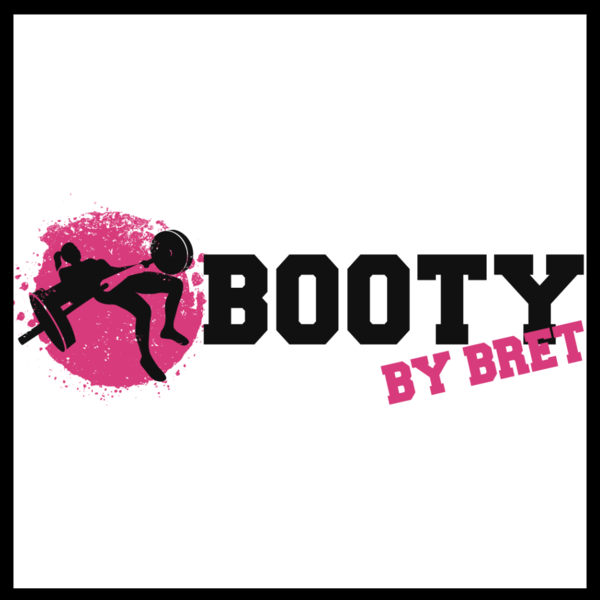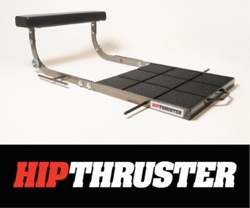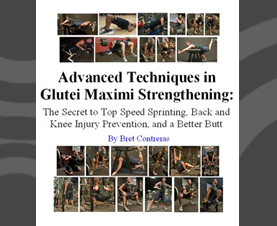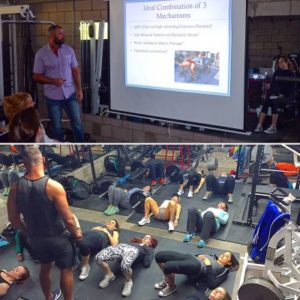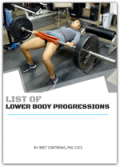
Hail to the King, Baby! A Typical Day at Revolution Training Systems
“Hi Bret, I Want to One Day Be a Popular/Successful Strength Coach/Personal Trainer/Fitness Authority, What Should I Be Doing?”
– Dozens of youngsters with aspirations every month
I’ve received this question three times this week so it warrants a well thought out answer.
First, you need to figure out your own path. All of the top dogs in the industry took a different road, but through talent, persistence, and effort, each eventually arrived at the top. Moreover, each of the higher ups in the fitness industry would give you markedly different advice as to how to succeed. In this article, I will present to you a list of ideas that I believe will help you grow your career, but you’ll need to put your own spin on it.
Second, the terms popular and successful are ambiguous. You can get popular and rich by just spouting out pure pseudoscience, stirring up controversy, and guruing the shit out of everyone. But you won’t speak at any conferences and you won’t be taken seriously by the movers and shakers in the industry. To me, integrity, power, and influence are more important than money. Money is certainly nice, and you should definitely strive to steadily improve your financial disposition over time. However, if tomorrow I inherited $10 million, my day to day life seriously wouldn’t change drastically. My number one goal is to help make the S&C industry a better place than when I entered it. This is what I love doing, and I’ll be doing it until the day I die.
If you just want to make money and scam people, read THIS and THIS. Some strategies that have worked magically for other gurus are: 1) start off legit, train a bunch of Olympians, and provide valuable content in order to establish trust, then all of a sudden become a total dick and start pushing bogus methods in order to further your profit, all the while constantly reminding people how many Olympians you trained two decades ago, constantly deleting negative/skeptical social media confrontations to give the illusion that you’re perfect, and constantly ignoring challenges for debates from industry leaders, 2) take every anabolic steroid in the world and get jacked beyond measure, scoff at all the other experts and call them pussies, then tell everyone to just do your special protocol, and 3) claim to have a direct line of communication with the God of Movement, then label every popular form of training as dysfunctional, all the while informing them about your special methods that will allow people to realize their true functional potential.
Hopefully you don’t care to go these routes. I’ll give you the benefit of the doubt and assume that you share the same values as I do. I’m guessing that you want to eventually 1) have a waiting list for clients, 2) have a highly popular blog or social media presence, 3) be making ample profit to sustain your lifestyle and allow you to save for your future, 4) be speaking at prestigious conferences, and 5) be making a positive difference in the lives of thousands of people around the world without selling your soul to the devil and compromising your integrity.
If this is the case, then you need to focus on three key areas: 1) understanding the art of strength training, 2) understanding the science of strength training, and 3) understanding the politics and marketing in the industry. Almost everyone interested in fitness is really good at one of the three key areas. Some are proficient in two of the three key areas. But the folks that are solid in all three key areas are far and few between. Here is my best advice in no particular order of importance.
How to Be a Popular & Successful Fitness Authority in 15 Steps
1. Get Certified and Become an NSCA Member
Get your certified strength & conditioning specialist (CSCS) from the NSCA and regularly read the Journal of Strength & Conditioning Research (JSCR), Strength & Conditioning Journal (SCJ), Personal Training Quarterly (PTQ), and NSCA Coach. A master’s degree or PhD will obviously help you, but it’s not mandatory. Think of advanced degrees as icing on the cake.
2. Subscribe to S&C Research Review
Subscribe to Strength & Conditioning Research Review and carefully read it every single month.
3. Subscribe to AARR
Subscribe to Alan Aragon’s Research Review and carefully read it every single month.
4. Investigate and Research
When you don’t understand certain terms or concepts that you stumble upon in the research reviews, further investigate them and figure them out. Eventually you want to be able to decipher and scrutinize the literature on your own, but the research reviews will suffice for many years. If you one day publish your own original research, this would be some serious icing on the cake, but it’s not realistic for everyone.
5. Attend Conferences & Seminars
Attend two conferences per year every year. In addition to popular seminars held by NSCA, ACSM, and Perform Better, consider attending a seminar held by a top powerlifter or group of powerlifters (Layne Norton, Dan Green, Chris Duffin, Mark Rippetoe, and Sorinex all provide seminars). Regardless of your specific area of interest, if you intend on making a living in the fitness industry, you should be exposed to a wide variety of speaker views and opinions. I recommend attending a presentation by Mike Boyle, Mark Verstegen, JC Santana, Martin Rooney, Dan John, Pavel Tsatsouline, Gray Cook, Dave Tate, and John Berardi.
6. Read Good Blogs & Websites
Obviously you already follow me, but make sure you follow other prolific individuals and websites in strength training and sports nutrition such as Brad Schoenfeld, Alan Aragon, Chris Beardsley, Layne Norton, Eric Cressey, Greg Nuckols, Sohee Walsh, Ben Bruno, Tony Gentilcore, Nick Tumminello, Jordan Syatt, Jen Sinkler, Chad Welsley Smith, Molly Galbraith, Jon Goodman , Armi Legge, and Dean Somerset (there are plenty more awesome people, these folks came to mind first). Also read T Nation and Elitefts and go back and read many articles from the archives.
7. Find Your Niche
Determine a focus/niche/specialty and figure out (and follow) the top researchers (HERE is a list of experts), coaches, and athletes in that particular area.
8. Intern
Intern at an S&C facility such as Cressey Performance, Mike Boyle’s MBSC, or Exos (formerly Athlete’s Performance). Everyone benefits from working with athletes.
9. Train Hard
Implement what you learn in your own training, and also with clients that you train. Work hard to increase your strength and improve your physique. Experiment and pay close attention.
10. Be Frugal
Be frugal in your everyday life so you can afford to pay for everything listed above. You’re investing in your career.
11. Be Consistent
Maintain this level of work ethic for many years in a row. You are a student of strength & conditioning – this will never change. Never stop learning.
12. Create Systems
Learn to think for yourself, and develop your own system of training based on everything you’ve learned along the way.
13. Know Thy Roles
When you’re ready, start up a blog and pay attention to your audience – serve your niche. Get on Facebook, Twitter, YouTube, and Instagram. Take pride in your craft and continuously strive to improve the quality of your work on all fronts. You’ll likely be a one man army, and your roles for your “company” will be: chief executive officer, chief marketing officer, chief science officer, chief technology officer, chief visionary officer, and chief operating officer, chief networking officer. You’ll be in charge of training clients/athletes, training any trainers/coaches, staying up on the science, writing and editing blogposts and articles, filming and editing videos, promoting yourself and responding on social media, creating products, sending out newsletters, creating presentations, speaking at seminars, and more. The greater popularity you attain, the greater the criticism and expectations. People will essentially expect you to be a top notch strength coach with a mastery of biomechanics and physiology while regularly pumping out tons of free content that is error free and well presented and formatted. You’ll need to be tech-savvy and have good writing and speaking skills, in addition to good instincts concerning what’s important and relevant to the field and what’s not.
14. Be a Professional
Act like a professional, not a little baby. No whining, complaining, bitching, griping, lying, excessive negativity, drama, over-the-top self promotion, or endless selfies. Be prudent with what you post and make sure everything you do has good intentions. Strive to elevate your industry and profession. You want to be taken seriously? Act the part, at least online.
15. Create Value
You need to make money in order to sustain your career, so take your time creating valuable products and services that people will proudly promote for you on social media when they see great results from your work.
If you follow these steps, congratulations in advance! You’ll have arrived.
BC

